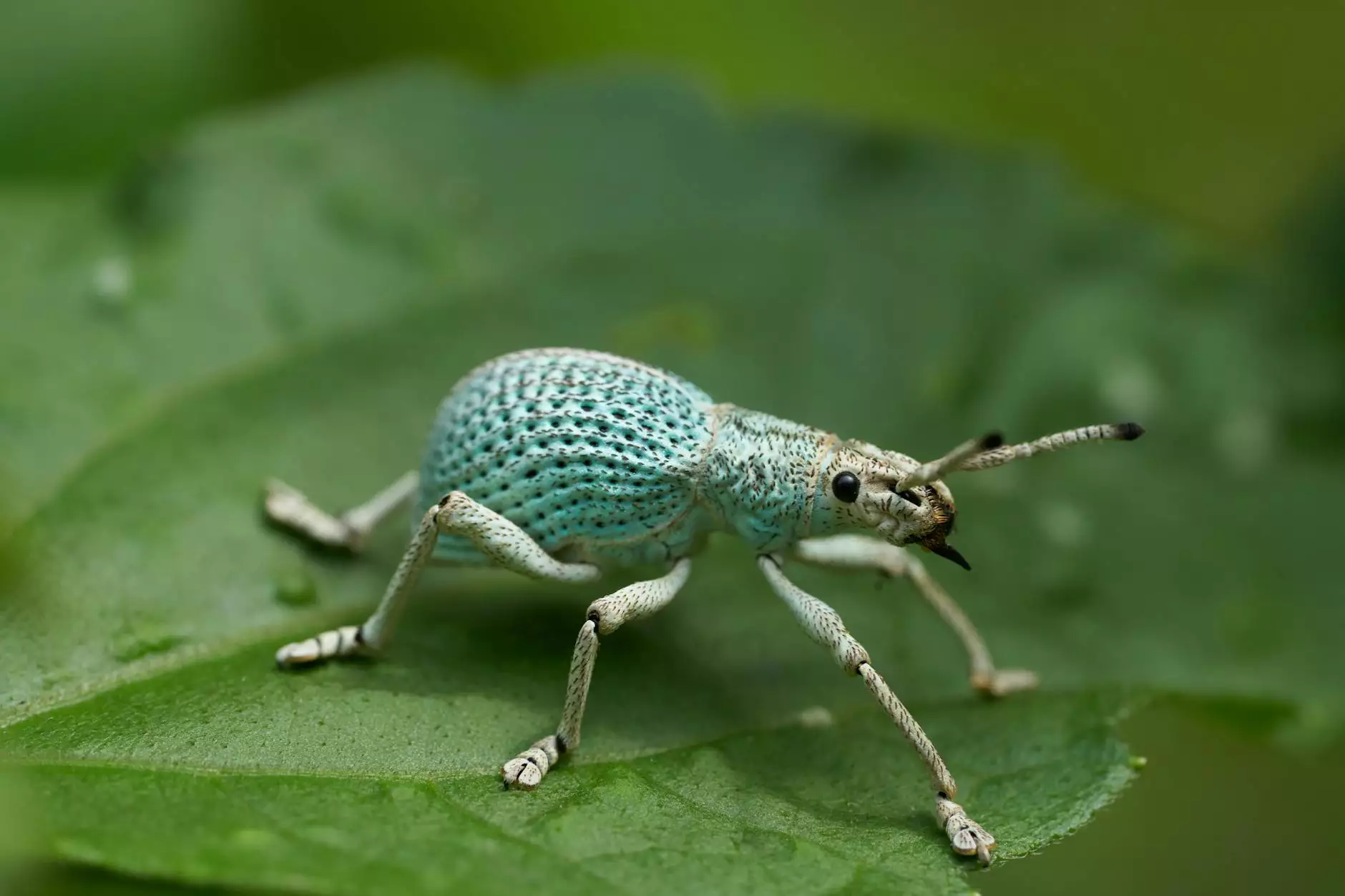The Ultimate Guide to Wheat Weevil Killers for Your Farm Equipment Needs

Farming is a cornerstone of our economy, and it faces many challenges, one of the most significant being pest management. Among the numerous pests that threaten farmers, the wheat weevil stands out due to its destructive nature. In this comprehensive guide, we will delve deep into the solutions available for managing these pests, particularly through effective wheat weevil killers. This information not only assists those already embedded in the farming industry but also enlightens new entrants about how to protect their investments and produce.
Understanding the Wheat Weevil: A Brief Overview
The wheat weevil (Sitophilus granarius) is a small beetle that has a significant impact on stored grains, particularly wheat. Adult weevils develop from larvae that feed and grow within the grain, compromising quality and leading to hefty economic losses.
- Species and Characteristics: Wheat weevils are approximately 2.5 to 4 mm long and are easily identifiable by their elongated snouts.
- Life Cycle: The complete life cycle, from egg to adult, typically spans around 30 to 40 days, depending on environmental conditions.
- Signs of Infestation: Infestations are often indicated by small holes in the grains and fine powdery residue (frass) that collects around storage areas.
The Importance of Effective Pest Management
Effective pest management is essential not only for preserving the quality of stored grains but also for ensuring the overall productivity of farming operations. Business owners must be proactive in utilizing wheat weevil killers to mitigate risks associated with these pests.
Economic Impacts of Wheat Weevil Infestations
The presence of wheat weevils in grain storage can lead to substantial economic losses. Here’s how they affect farmers:
- Direct Losses: Infestations can reduce grain weight and quality, leading to financial setbacks during sales.
- Increased Costs: Farmers may incur additional costs for pest control measures and grain reconditioning.
- Market Reputation: Poor quality grain can damage a farmer's reputation, affecting future sales.
Identifying a Reliable Wheat Weevil Killer
When searching for an effective wheat weevil killer, it’s vital to consider several factors to ensure the selected method aligns with your farming practices.
Natural vs. Chemical Solutions
Farmers have various options ranging from natural to synthetic solutions. Each has its distinct advantages and disadvantages:
- Natural Solutions:
- Essential Oils: Certain essential oils, such as neem oil, have shown effectiveness in repelling weevils and other pests.
- Biological Control: Introducing natural enemies like parasitic wasps can help control weevil populations.
- Chemical Solutions:
- Pesticides: Various commercial pesticides specifically designed for grain protection can effectively eliminate weevil infestations.
- Fumigation: This method involves sealing storage areas and using gaseous substances to eradicate pests effectively.
How to Effectively Use Wheat Weevil Killers
Implementing a wheat weevil killer strategy requires knowledge and proper execution. Here are steps to ensure effective pest control:
1. Inspection and Monitoring
Regularly inspect stored grains for signs of weevil infestation. Use traps or visual inspections as proactive measures.
2. Proper Storage Practices
Implement best practices in grain storage, which include:
- Keeping grain bins sealed and stored in cool, dry conditions.
- Regularly cleaning storage areas to eliminate leftover grain debris.
- Using airtight containers when storing smaller quantities.
3. Application of Wheat Weevil Killers
Whether you choose natural or chemical afford opportunities, follow the instructions carefully for optimal results. For example:
- If using pesticides, apply at recommended rates and intervals for the specific product.
- For natural solutions, consider conducting small-scale trials before widespread application.
Preventive Measures to Control Wheat Weevil Infestations
Besides actively killing weevils, implementing preventive measures is crucial in specialized farming sectors:
- Regular Cleaning: Keep storage areas clean and free of grain remnants.
- Temperature Control: Adjusting temperature and humidity in storage facilities can deter insects. Ideal conditions for storage should be below 60°F and low humidity.
- Inventory Rotation: Regularly rotate inventory to ensure older grains are used first, minimizing storage time of newer harvests.
Innovative Technologies in Pest Control
As farming evolves, so does pest control technology. Many businesses are taking advantage of advancements to enhance their agricultural practices:
Smart Sensors
Implementing smart sensors in grain bins can monitor environmental conditions and alert farmers of any anomalies conducive to pest growth.
Integrated Pest Management (IPM)
IPM strategies combine biological, cultural, and chemical tools to create a sustainable approach for farmers. This holistic method offers environmentally friendly solutions while effectively managing pest populations.
Choosing the Right Products and Suppliers
When it comes to addressing wheat weevil infestations, selecting the right products is paramount. Not all wheat weevil killers are created equal. Therefore, it’s essential to:
- Research reputable brands known for their effectiveness and safety.
- Consult experts or local agricultural extensions for recommendations tailored to your geographical area.
- Read reviews and case studies from other farmers to gauge product performance.
Benefits of Partnering with Experts
Partnering with a specialized business like tsgcinc.com can significantly elevate your pest management strategy. Here’s how:
- Access to Specialized Equipment: Expert businesses offer tailored equipment maintenance and repair solutions.
- Consultation Services: Professional advice on pest management techniques can enhance operational effectiveness.
- Innovative Solutions: Explore the latest products and technologies designed for effective pest control.
Conclusion: Empower Your Farming Business Against Wheat Weevil Infestations
Taking charge of your pest control strategy against wheat weevils can significantly affect the sustainability and productivity of your farming business. By utilizing effective wheat weevil killers and leveraging expert partnerships like those offered by tsgcinc.com, you can create a robust defense against these pervasive pests. Remember to remain informed, implement best practices, and continually adapt to the challenges that arise in the agricultural landscape.
Your proactive approach to pest management not only enhances the quality of your products but also safeguards your investment against potential losses. Embrace the knowledge and tools available to foster a thriving farming environment.









